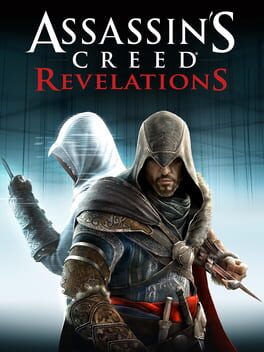This is the hardest that Assassin's Creed has ever chased Uncharted. Tombs are now main quests, reflecting Ezio's characterization as a scholar-adventurer who loves finding rare books that lead him to keys that unlock a library, who writes letters detailing his activities to his sister, and who falls in love with a bookseller. Missions tend to be tightly scripted setpieces, with lots of fixed camera angles and action-packed cutscenes.
Assassination and brotherhood management, an activity Ezio grows increasingly weary of, is mostly side activity that seems to inconveniently intrude upon his quest for knowledge. But at least provides opportunities to use the ridiculously bloated toolset that the main missions rarely call for.
Constantinople is one of the best cities in a series, and the new hookblade moves make it a joy to move across. They even seemed to have tuned up the returning moveset, because I encountered way fewer control issues during fast-paced chases than I did in AC2 and Brotherhood.
I really love Desmond's first person puzzle platformer with walking sim narration. The character writing in this game is excellent, and the three storylines always have satisfying thematic echoes of each other. Desmond needs to learn the difference between himself, Ezio, and Altair, but you can see why he got confused in the first place: they all deal with similar problems in their lives.
It's a very somber, contemplative story that is a great setup for the tone of AC3... when Desmond arrives at The Revelation, he doesn't even learn anything new. The struggles of all three heroes just led to another redundant backup message. It's not uncovering secret knowledge that brings these men peace, but understanding each other. Desmond looked to Subject 16 as a guy who knew all the answers, but he too is just a guy. All Clay really wants is a conversation about something real and mundane.
Assassination and brotherhood management, an activity Ezio grows increasingly weary of, is mostly side activity that seems to inconveniently intrude upon his quest for knowledge. But at least provides opportunities to use the ridiculously bloated toolset that the main missions rarely call for.
Constantinople is one of the best cities in a series, and the new hookblade moves make it a joy to move across. They even seemed to have tuned up the returning moveset, because I encountered way fewer control issues during fast-paced chases than I did in AC2 and Brotherhood.
I really love Desmond's first person puzzle platformer with walking sim narration. The character writing in this game is excellent, and the three storylines always have satisfying thematic echoes of each other. Desmond needs to learn the difference between himself, Ezio, and Altair, but you can see why he got confused in the first place: they all deal with similar problems in their lives.
It's a very somber, contemplative story that is a great setup for the tone of AC3... when Desmond arrives at The Revelation, he doesn't even learn anything new. The struggles of all three heroes just led to another redundant backup message. It's not uncovering secret knowledge that brings these men peace, but understanding each other. Desmond looked to Subject 16 as a guy who knew all the answers, but he too is just a guy. All Clay really wants is a conversation about something real and mundane.
